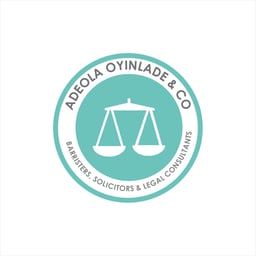Banking and Financial Services Regulation Law
How to Establish a Microfinance, Lending, or Payment Company in Nigeria
Overview
If you’re thinking about launching a microfinance bank, lending company, or payment platform in Nigeria, this guide is written from the ground up based on real-world experience. I’ll walk you through every stage—from registering your company, to understanding the paperwork and capital requirements, to dealing with the Central Bank of Nigeria (CBN) and staying compliant for the long haul. The aim is to demystify the process with practical advice, insights, and a checklist you can genuinely use if you’re serious about building a compliant financial business in Nigeria.
In short, you’ll need to:
Register your business with the Corporate Affairs Commission (CAC);
Prepare strong governance documents and a business plan;
Apply to the CBN for the right licence (microfinance, finance company, or payment services);
Put your compliance systems (like AML/KYC and IT controls) in place; and
Secure the CBN’s Approval-in-Principle, meet any further requirements, then get your final licence.
Which licence do you need?
Microfinance Bank (MFB): This is your route if your goal is to accept deposits and provide microloans to the public. There are three major categories namely;unit, state, and national. Each with its own capital requirements. You’ll be dealing directly with the CBN for licensing and ongoing oversight.
Finance / Lending Company: If you mainly want to lend money (to individuals or businesses) but don’t plan to accept deposits, you’ll be looking at a finance company licence. These companies have their own set of rules under the CBN.
Payment Solution Provider (PSP or PSSP): If your focus is on processing payments, running wallets, handling remittances, or building APIs for banks and businesses, you’ll need a CBN payment licence. There are several categories , each with different activities allowed and capital requirements. Be sure to check which fits your business model.
Step-by-step Guide
Choose your company structure and register with CAC
Start by registering a limited liability company. This is the most common choice for founders. If you have foreign partners, be prepared for additional paperwork and potentially higher minimum capital. You’ll need to choose a business name, prepare your Memorandum and Articles of Association, and obtain your CAC certificate and Tax ID (TIN).
Draft a detailed business plan & governance documents
Your business plan isn’t just a formality. Regulators want to see that you’ve thought things through and have a real strategy. Make sure you include:
Market analysis and product suite (savings, micro-loans, wallet, merchant acquiring).
Financial projections (3–5 years), capital injection schedule, and stress tests.
Risk management & AML/CFT framework, IT systems, disaster recovery, and outsourced vendor management.
Corporate governance: board structure, CVs of directors/promoters, fit-and-proper declarations.
Meet minimum capital & financial requirements
Capital thresholds have changed historically and vary by licence:
For microfinance banks (MFB), the capital you’ll need depends on your chosen tier: ₦20 million for unit, ₦100 million for state, and ₦2 billion for national licenses are common figures. Finance companies have lower capital requirements than banks, but you’ll still need to follow the CBN’s prudential guidelines.
Payment service providers (like PSPs and PSSPs) have different capital requirements depending on exactly what you want to do. These have changed recently, so double-check the latest CBN guidelines to make sure you’ve budgeted enough.
Required Documents
The list of required documents will depend on your license, but here’s what you’ll almost certainly need:
CAC certificate of incorporation, Memorandum & Articles, Form of Allotment.
Detailed business plan & financial projections.
Board and management CVs, passports/IDs, police good conduct where applicable, and fit-and-proper forms.
Evidence of paid-up capital / bank statements showing capital injection.
AML/CFT policy, KYC procedure, IT security policy, data protection compliance (NDPR), internal controls/policies.
For PSP/PSSP: software architecture, API specifications, PCI/DSS compliance plan (if card acceptance), risk management.
Apply to CBN: AIP, then final licence
Most financial licences follow a two-stage process:
First comes the Approval-in-Principle (AIP): The CBN will review your documents and, if you meet their requirements, will issue a provisional approval. Be ready to pay a non-refundable application fee and submit your financial documents (audited or projections, depending on your stage).
Once you’ve met all pre-licence conditions (like showing your capital is in the bank and your IT systems are set up),the CBN will then issue your final licence subject to meeting other requirements and you’re ready to operate.
Processing times vary depending on the completeness of the application and regulator workload.
Implement compliance & operational readiness
Before you go live, make sure you’ve done the following:
Deploy KYC/AML onboarding. Register with Nigeria’s Financial Intelligence Unit (NFIU) where required.
Put in place transaction monitoring, suspicious activity reporting (SAR) frameworks.
Establish vendor contracts, PCI/DSS compliance (if you handle cards), and robust cybersecurity controls.
Run pilot / sandbox if deploying novel fintech services , engage the CBN on sandbox options if available.
Post-licence obligations
After you get your licence, don’t relax, there’s ongoing work to stay compliant:
Submit periodic prudential reports and audited accounts to CBN.
Maintain minimum capital & liquidity ratios prescribed.
Keep up AML training and independent audits.
Notify CBN of significant corporate changes (shareholders, directors).
Compliance & risk highlights (must-do list)
Anti-money laundering (AML/CFT): You must have systems for customer due diligence, transaction monitoring, reporting suspicious activities, and appointing a compliance officer
Data protection: Nigeria’s NDPR applies to you if you’re collecting or processing personal data.
Cybersecurity and third-party risk: Have clear contracts (SLAs) with your tech providers, run penetration tests regularly, and be sure you have an incident response plan in place.
Consumer protection: Be upfront about your fees and lending terms, and stick to any interest rate caps that apply.
Outsourcing and agents: If you use agents or third parties (like in agent banking), get CBN approval and monitor their activities closely.
Practical tips for founders & foreign investors
Work with a good lawyer and compliance pro from the start. CBN is strict about who runs and owns these companies, and about your governance setup.
Be conservative in projections and explicit on capital sources. Regulators want verified evidence of funds.
Consider partnerships: partnering with an existing PSP or MFB can reduce time-to-market for some services (but check regulatory limits).
Plan for NDPR & PCI/DSS if holding customer data/cards.
Check recent CBN circulars just before application. Capital and procedural rules have been updated several times; always rely on the latest CBN guidance.
FAQs
Q: How long does it take to get a microfinance bank licence in Nigeria?
A: With complete documentation, expect 3–12 months, but bank-level or national authorisations can take longer. Always factor time for capital verification and regulatory back-and-forth.
Q: Can a foreigner own 100% of a Nigerian microfinance or fintech company?
A: Foreign participation is permitted but comes with specific CAC and sectoral requirements; some licences may require local presence or minimum local shareholding depending on the activity, confirm with CAC and CBN.
Q: What’s the difference between a PSP and a Payment Service Bank (PSB)?
A: PSPs/PSSPs generally provide payment processing services (merchant acquiring, payment gateways, wallets) and are licensed accordingly. A Payment Service Bank or Payment Solution Bank often has a broader remit (deposit taking within preset limits) and different capital rules. Check the CBN payment guidelines for exact scopes.
For further enquiries, kindly contact Olawunmi Ojo on [email protected]
The Trusted Advisors - November 28 2025

